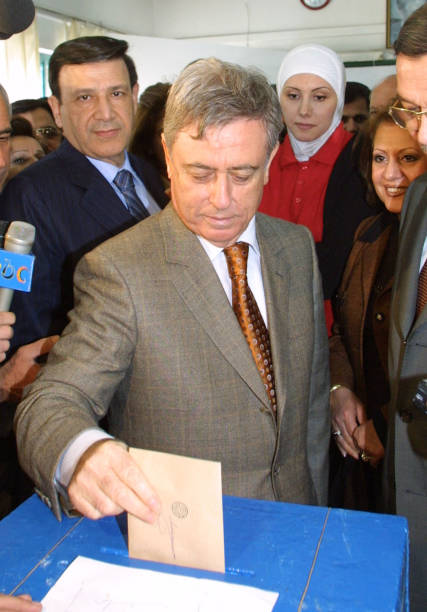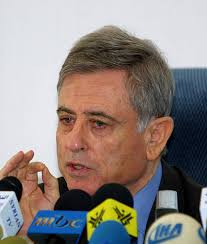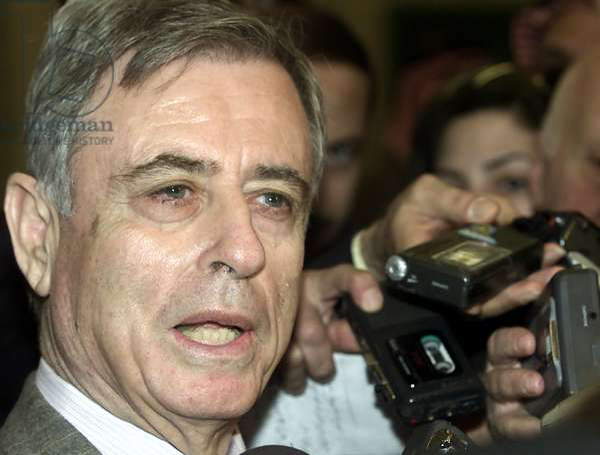Visiting First Vice-President of Iran Hassan Habibi Thursday afternoon met Syrian President Hafez Al-Assad in Damascus. Iran’s Foreign Minister Kamal Kharrazi and his Syrian counterpart Farouq Al-Shara were also present in this meeting. The two sides discussed bilateral ties and the latest regional issue. In another development Thursday Habibi and his Syrian counterpart Abd Al-Halim Khaddam held their first round of talks where Khaddam strongly rejected U.S. and western calls for the overthrow of Iraqi President Saddam Hussein, saying such action could threaten world peace and security.
No country has the right to work for changing the regime in another country or to interfere in its internal affairs because this is the responsibility of the people of each country, Syrian Vice-President Abdel-Halim Khaddam said. Speaking to reporters while welcoming his Iranian counterpart Hassan Habibi in Damascus to co-chair meetings of the Supreme Syrian-Iranian Commission, Khaddam said all Arab states rejected the principle of foreign intervention.
If we applied this principle anywhere in the world, international peace and security would be threatened, he said. The Iraqi Liberation Act, signed by U.S. President Bill Clinton in October, permits but does not oblige the U.S. administration to spend nearly $100 million on military aid for democratic foes of Saddam, with the goal of ousting him. Britain has hosted a meeting of the Iraqi opposition.
Their call followed a series of conflicts between Iraq and the United Nations over the activities of UN inspectors assigned to search for and destroy Iraq’s weapons of mass destruction. Syria and its neighbor Iraq, ruled by rival factions of the Baath Party, have been at odds for about two decades but ties have started to improve during the last two years.
Although Iraq and Syria did not restore diplomatic ties, both agreed last year to engage in economic and commercial cooperation in line with Baghdad’s oil-for-food deal with the united nations. Khaddam said that ties with Turkey, which worsened recently when Ankara threatened military action against Damascus over its alleged support for Kurdish separatist rebels, were now normal. Syria and Turkey signed an agreement on October 20 in which Damascus pledged not to support the Kurdistan Workers Party seeking self-rule in South East Turkey. Habibi expressed satisfaction over the set up of the Irano-Syrian joint high commission at the right time and attached great significance to the exchange of views between the two nations’ high ranking officials on the issues relating to Palestine, Lebanon and Afghanistan. Expressing concern over the recent developments taking place in the occupied Palestine, the Iranian senior official called on all the regional countries to further remain on alert regarding the ongoing developments in the Palestinian occupied territory.
On political situation and ongoing crisis in Afghanistan, Habibi rejected domination of a single group over Afghanistan and reiterated that the only way to end the crisis is cooperation among all the Afghan political factions and ethnic groups. Syrian vice-president on his part referred to the Irano-Syrian commonalties and said that bilateral cooperation is needed to counter conspiracies against the two nations.
Khaddam then emphasized on the Syrian support to the Lebanon and said that his country deems it as its duty-bound to back the righteous resistance of the Palestinian people. Iran’s first vice-president heading a top delegation arrived here Thursday morning to hold talks with the Syrian officials on the promotion of bilateral cooperation between the two countries.



